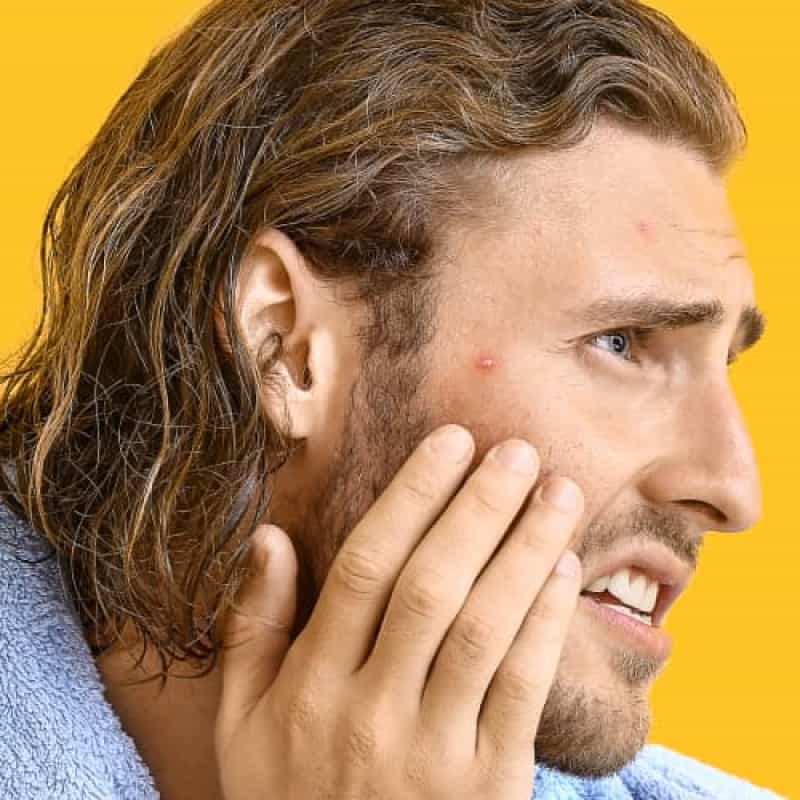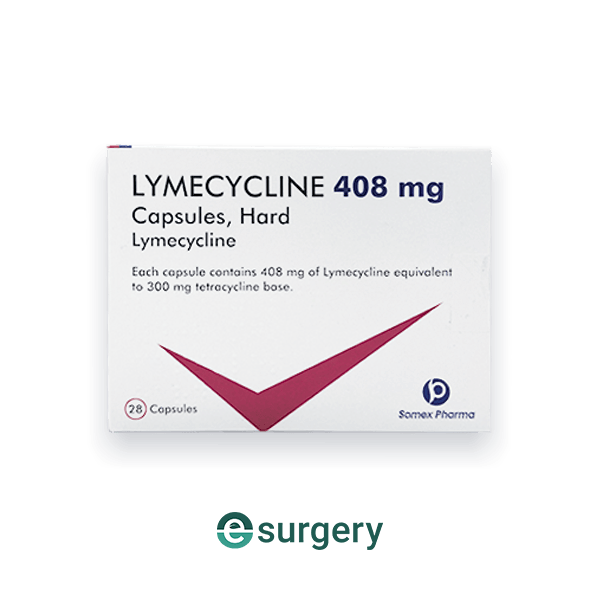
Have you been prescribed Lymecycline?
Are you suffering from acne and wondering if Lymecycline can help? Perhaps even can Lymecycline make acne worse? According to a Global Report, [7] it is a common complaint about many people, an estimated 80% of the population experiencing acne at some point in their lives.
How do you know which one to use with the many treatments on offer? Topical treatments include Acnecide (benzoyl), Treclin (retinoids), and many others such as Lymecycline capsules.
But can lymecycline make acne worse? This blog will explore whether Lymecycline can make acne worse or if this is a myth!
What is Lymecycline Treatment?
Lymecycline is a broad-spectrum antibiotic that fights bacteria and certain types of fungi (such as ringworm). Doctors often prescribe it to treat skin infections like impetigo or cellulitis, but it may also be used to treat acne. Just like other antibiotics, Lymecycline is not suitable for everyone; pregnant and breastfeeding women should avoid it as well as kids under the age of 12 years. Can Lymecycline make acne worse? It’s important to be aware that Lymecycline can make acne worse if you take it when you shouldn’t.[1]
What Causes Acne?
It is a skin condition that primarily affects adolescents during puberty, but it can also affect adults.[2]
The condition is caused by clogged pores, increased production of sebum, and dead skin cells. A lot of people experience this condition on their face, neck, chest, back and shoulders. Though the exact cause is not known, some factors associated with worsening acne include hormones, stress, and an improper diet.
Acne can be easily treated with professional acne products such as Acnecide and Treclin. These are specially designed to help control the oil on your skin, kill bacteria and reduce redness.

Who Is Most Likely To Have Acne?
It is not necessarily only a teenage problem, but the majority of acne sufferers are between the ages of 12 and 25. Studies have shown that the condition affects different people in different ways. Hormones, diet, stress, or genetics can all affect whether you develop acne at all.
It is crucial to know how to deal with this skin condition because it can cause scarring if left untreated. If you are dealing with acne, I would recommend consulting your dermatologist for treatment options. Treatments are available in many forms, such as topical creams or oral medications, which are tailored to your needs.
Oral antibiotics work by weakening bacteria with different types of medications affecting different bacteria.[3] This means that it is possible for the condition to worsen temporarily before getting better. Your dermatologist can help determine the course of treatment that will work best for your skin condition, so be sure to have regular checkups. For more information, consult our pharmacist.
How Can Lymecycline Help Treat Acne, Or Can Lymecycline Make Acne Worse?
Lymecycline is a type of antibiotic that can be used to treat bacterial infections. It is often prescribed for people with acne, but it should not be taken by pregnant or breastfeeding women or kids under the age of 12.
Lymecycline belongs to a class of medications called tetracyclines, and it works by slowing down the growth of bacteria or preventing them from multiplying.[4] Since bacteria cause your acne, it makes sense that an antibiotic would help you get rid of the problem.
Some antibiotics can make it worse. However, taking Lymecycline is unlikely to cause it to get worse.
Does lymecycline cause purging?
Retinization, more commonly known as ‘purging,’ is a medical term, describing the initial reaction of the skin to a new medication. During this time, the skin can become dry and irritated. This is due to an increased rate of skin cell replacement, causing dirt and dead cells to be flushed to the top of the skin. This process tends to happen during the first four weeks of the antibiotic course, and should ease with time.
Whilst it is impossible to predict how everyone’s skin will respond to new medication, it is unlikely that Lymecycline will cause your skin to get worse. It may however take a few months for Lymecycline to fully take effect. More common side effects include nausea, diarrhoea, and headaches.
Does lymecycline cause weight gain?
Reports of lymecycline being linked to weight gain are extremely rare. Whilst antibiotics may cause weight gain, scientists have yet to prove this to be the case. As long as you maintain a healthy diet and exercise regularly, it is unlikely that lymecycline will cause you to gain weight.
How Do I Prevent My Acne From Getting Worse?
It is important to eat a healthy diet to prevent it. Make sure you try to avoid sugar-filled foods and drinks, processed foods, and margarine. It’s also a good approach to eat a lot of vegetables.[5]
You should wash your skin with a gentle cleanser, but make sure you remove all makeup before going to bed at night. Don’t forget to clean up after yourself by putting away any dirty dishes or anything that might get in contact with bacteria.
It is crucial to try to avoid picking at your skin because it can spread bacteria. This means no squeezing pimples, popsicles, or any other foods that will do more damage than good. It’s also best to keep your hands off of your face if you are in public places.
If you notice that your acne is not going away, it might be time to make an appointment with a dermatologist.
There are a few treatments that we recommend:

Patients should always speak to their doctor before starting a new medication.
Lymecycline not working? Are there other options?
Lymecycline tends to combat acne slowly, so give it time to take effect! As lymecycline is an antibiotic, it’s important to stick with it for the whole course, or the bacteria causing your acne may grow resistant to the antibiotics. However, if you are concerned about your medication, speak to your doctor.
Why Do We Need Antibiotics In The First Place?
Antibiotics are needed because they are able to inhibit the growth of bacteria. They are used for the treatment of bacterial infections. Antibiotics do not remove bacteria entirely, but they can prevent further infection by killing off some of the bacteria that may be causing an infection.[6]
Antibiotics are not harmful to cells in the body, but they can cause side effects in certain people, including diarrhoea and rashes.
People should never stop their antibiotics without first talking with their doctor. When people stop their antibiotics early, this could lead to the bacteria becoming resistant to them – which means that these powerful drugs could no longer work against them.
When Should I Stop Taking My Antibiotics?
When you should stop taking your antibiotics depends on the type of antibiotic you are taking. For most infections, it is recommended that you complete the course to fully clear them up. This also helps to prevent resistant bacteria from developing. However, it would be best if you did not take them for too long.
Some antibiotics are only supposed to be taken for a short time, even though they are effective at treating infections. This is because any stronger bacteria that have developed resistance will remain susceptible to the antibiotic until they have multiplied enough to challenge it.
Taking strong antibiotics for too long can cause these resistant bacteria to spread through the body. This causes the bacteria to become even stronger and resistant to more antibiotics in future.
The length of time it takes for different types of medications to complete their course varies, so the best thing is to consult your doctor.
Conclusion
This is not something that can be solved overnight. It’s best to take it slow and steady, giving your body time to adjust to the changes you are making in order for them to work properly.
The lymecycline antibiotic should help with symptoms like inflammation, redness, pimples, and breakouts, but if you feel any adverse reactions, stop taking the medication immediately.
If your acne does get worse while on this drug (meaning more frequent outbreaks), then discontinue use right away or consult a doctor about an alternative treatment plan that may be better suited for your needs.
Sources
- Lymecycline Overview | NHS UK
- Effect on Adults, Study | NCBI
- How Do Antibiotics Work? | Healthline
- Study On Tetracycline | NCBI
- Anti-Acne Diet | Healthline
- Research On The Effects Of Antibiotics On Bacteria | NCBI
- Global Acne Market Report | Report Linker
Further Reading
About Lymecycline | NHS
Acne fulminans associated with lymecycline intake | NCBI
Lymecycline capsules | Patient.info






